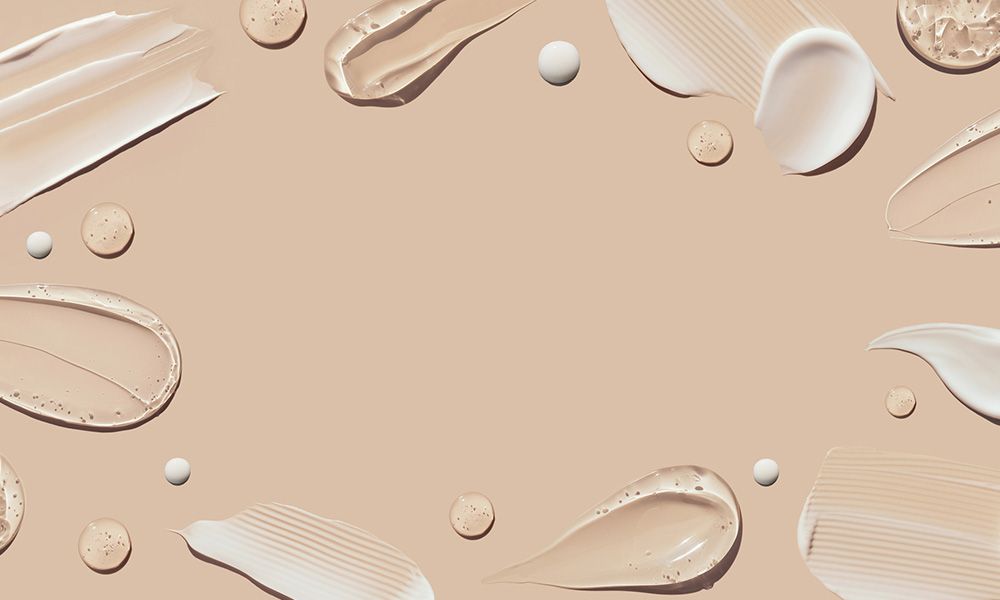Featured
What is Collagen and Why Do You Need It for Healthy Skin?
Is collagen as important as everyone says it is for healthy-looking skin? You bet— and so much more.

By Charlene Bollinger
October 8, 2023
These days, everybody out there seems to have their favorite collagen hack, supplement, smoothie, or product. In reality, however, collagen is not something “out there” you need to buy in order to be healthy. It’s an amazing substance that the body produces naturally!
Is collagen as important as everyone says it is for healthy-looking skin? You bet—and so much more. That is why the best way to help your skin is to work with your whole body to produce collagen naturally. Here is everything you need to know to do just that!
What is Collagen?
Collagen is the most abundant form of protein in the body. It is basically the “stuff” that holds your whole body together. It is absolutely vital not just for skin, but for every organ in the body:
- Collagen is what cartilage is made of. This is the connective tissue that creates flexible structure for joints as well as the structure for your nose, earlobes, and more. When cartilage-producing collagen is low, joint pain and stiffness can result. In fact, studies have found that upping collagen can help people with osteoarthritis. (1)
- Collagen is the substance that adheres muscles to bone. Low collagen levels can be the cause of muscle aches and cramping. An intriguing Danish study done in 2004 found that low collagen levels corresponded to overall muscle achiness and even muscle-related injury in fibromyalgia patients. (2)
- Collagen is what keeps your teeth firmly in place. Lack of collagen can lead to loose, sensitive teeth and even tooth loss. (3)
- Healthy levels of collagen in the body help the digestive system function optimally. Studies have long shown how collagen plays a role in sealing up the gut and helping to heal “Leaky Gut.” New research shows how rebalancing collagen levels can help with many disease conditions where Leaky Gut can play a part. This includes many autoimmune conditions such as rheumatoid arthritis as well as gut-related issues like IBS, and even autism. (4) (5) (6)
The above is just the tip of the iceberg when it comes to all the amazing things collagen does in the body. In addition, it is also vital for the development of healthy hair, eyes, and, of course, skin!
Collagen in Skin & Why It Gets Depleted
While our skin is what holds us “all together,” collagen is the gel-like substance that holds the skin together. All collagen molecules do their job by packing together to form long, thin strands called “fibrils.” There are many different types of collagen, but most can be categorized as Type 1, 2, or 3. Type 1 collagen is found the most in the skin. Type 1 helps to connect cells and give skin both strength and elasticity.
Research shows that after age 30, collagen levels can drop an average of 1-2% per year. This is caused in part by age-related changes in Human Growth Hormone (HGH). Of course, lifestyle, stress levels, and diet also play a huge part. (7)
Collagen’s key role in skin health and vitality is why the first signs of age are often seen on the face and on the skin in general. Wrinkling, sagging, spots, and cellulite are all signs that collagen may be on the decline.
On the other hand, when collagen increases, amazing things can happen! A 2015 Brazilian study found that women with cellulite who took a supplement containing collagen peptides experienced marked improvement in their condition after six months of use. (8)
What You Can Do About Declining Collagen
It would be silly (and irresponsible) to say that simply upping your collagen levels will turn your 60-year-old skin into a 20-year-olds. That being said, there are definitely things you can do naturally to raise collagen levels and begin seeing a marked difference not only in your skin, but also in overall health. Here are just a few of them:
- If you smoke, quit now! Cigarette smoking is probably the worst thing you can do for your skin and the single most effective thing you can do to lower your collagen levels. (9)
- Reduce stress levels. Research has shown that collagen make up and utilization is intricately connected to the levels of homocysteine in the body. Periods of high stress (or simply chronic stress in general) contribute to increases in this stress hormone substance. In turn, this can affect the way in which collagen fibrils bind together. (10)
- Don’t overdo it when it comes to sun exposure. A comparative study conducted at Jefferson Medical College in Philadelphia discovered that long-term sun exposure can alter collagen production on the genetic level. (11)
- Exercise. Exercise can stimulate new collagen production as well as rebalance production of human growth hormone. According to experts, the best kinds of exercise for healthy skin are weight training and HIIT. (12)
- Eat a whole foods diet.
Finally, eating a whole foods diet can do your body a world of good when it comes to collagen production. Foods that have high vitamin C are especially important since C is the major nutritional player for collagen production as well as synthesis in the body. Some foods high in C include citrus fruits, tomatoes, cilantro, spirulina, green leafy vegetables, aloe vera, and herbs like ginseng and camu camu. (13)
As stated above, collagen is a protein. This means that it is made up of many different kinds of amino acids, especially arginine and glycine. In addition to vitamin C-rich foods, protein dense foods like fish, chicken, beef, nuts, beans, and bone broths can give you the “collagen building blocks” your body needs. (14)
How Charlís Products Can Help
One of the biggest factors which Linda Chae, founder of the ToxinFree © label and chief CHARLÍS product formulator, and I consider when choosing a specific plant substance for use in any CHARLÍS product is how it works to help increase collagen production in the skin.
The first major way a plant can do this is by providing natural sources of vitamin C. If you have used CHARLÍS products for a while, then you probably have come to know (and love!) that refreshing citrus scent. Naturally mood balancing and detoxifying, citrus essential oils are also incredibly powerful sources of vitamin C for the skin when applied transdermally. All CHARLÍS products contain some amount of citrus. The CHARLÍS Nourishing, Anti-Aging Toner in particular contains the vitamin C-enhanced power of two different kinds of citrus-- Bergamot oil and sweet orange oil. It also has organic aloe leaf juice, another excellent source of vitamin C.
However, vitamin C is not the only way that natural substances can help increase collagen production in the body. Marigold flower extract, found in the CHARLÍS Breath of Life Serum, has been shown to activate collagen production. Its moisturizing, anti-inflammatory effects can also repair damaged skin. In fact, each phytonutrient that is within marigold flowers, such as vitamin E and carotenoids, provide nourishment and antioxidant power to balance as well as increase collagen production naturally.
In addition, a natural polysaccharide substance called beta glucan has been shown to work in the inner recesses of skin tissue where it helps to increase elasticity and skin vibrancy by kickstarting collagen. It too is a powerful antioxidant and can create a strong barrier of protection between your skin and everyday environmental pollution. The CHARLÍS Daily Facial Cleanser contains oat-derived beta glucans for deep cleaning and nourishing every time you cleanse your face.
You CAN Kickstart Collagen Production for Healthy Skin and a Healthy Body!
If you know anything about the CHARLÍS mission, then you know that we are all about helping YOU to experience healthy, vibrant, amazing-looking skin from the inside out! Collagen is absolutely key in this process, and I hope you know now that there are so many ways that you can help increase it naturally.
All of the products in the CHARLÍS Collection work with your own body’s mechanisms through the targeted use of key herbs, plants and roots which are organic, never genetically engineered, always wild-harvested, and have been thoroughly and independently lab-tested as ToxinFree©.
I encourage you to experience the CHARLÍS difference today to kickstart your skin’s own collagen production naturally!
References:
(1) Daily oral consumption of hydrolyzed type 1 collagen is chondroprotective and anti-inflammatory in murine posttraumatic osteoarthritis
(2) Collagen and muscle pathology in fibromyalgia patients
(3) The Formation of Collagen Fibrils in the Dental Pulp
(4) Collagen peptides ameliorate intestinal epithelial barrier dysfunction in immunostimulatory Caco-2 cell monolayers via enhancing tight junctions
(5) Leaky Gut As a Danger Signal for Autoimmune Diseases
(6) New study demonstrates effect of dietary supplements on clinical aspects of autism
(7) Decreased Collagen Production in Chronologically Aged Skin
(8) Dietary Supplementation with Specific Collagen Peptides Has a Body Mass Index-Dependent Beneficial Effect on Cellulite Morphology
(9) Smoking affects collagen synthesis and extracellular matrix turnover in human skin
(10) Influence of mental stress on the plasma homocysteine level and blood pressure change in young men
(11) Comparison of sun-protected and photoaged skin by northern analysis, immunohistochemical staining, and confocal laser scanning microscopy
(12) Growth hormone release during acute and chronic aerobic and resistance exercise: recent findings
(13) Effect of vitamin C and its derivatives on collagen synthesis and cross-linking by normal human fibroblasts
(14) Collagen and Your Body: What to Know
subscription
join our exclusive beauty community
Elevate your beauty journey with personalized recommendations and stay connected with a community that shares your passion for self-care. Subscribe now and embark on a beauty adventure with us!
